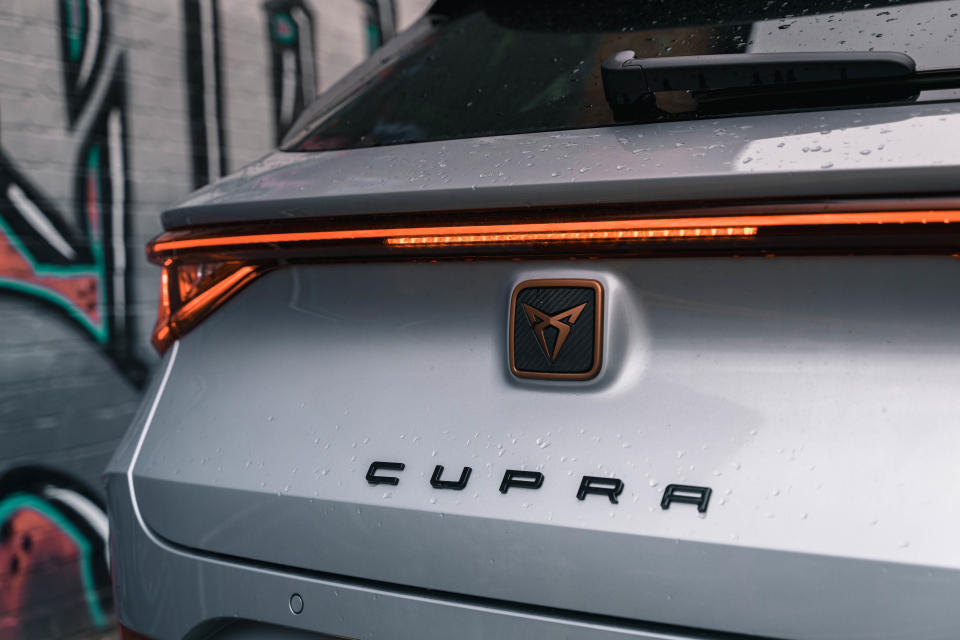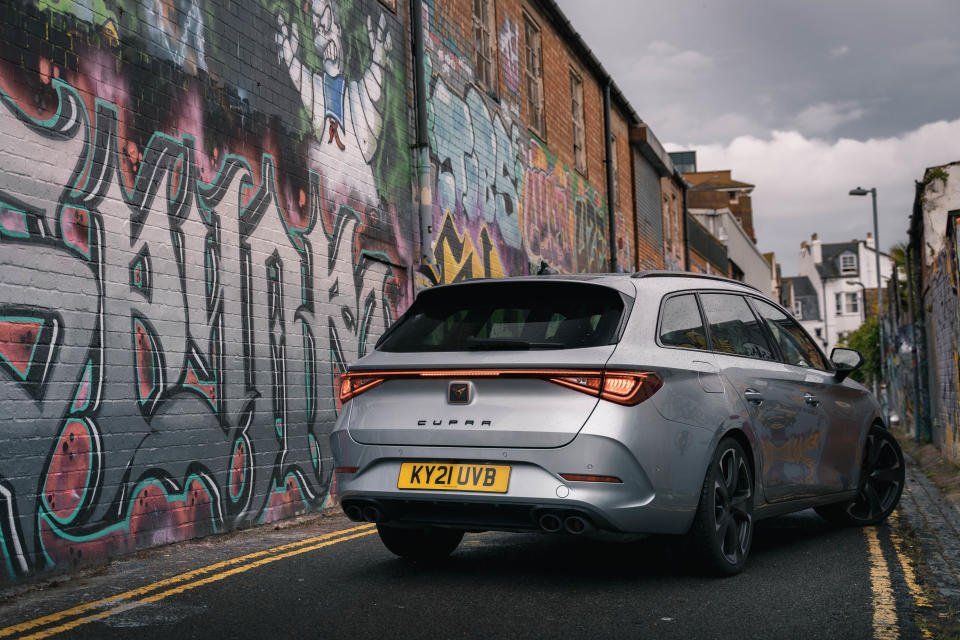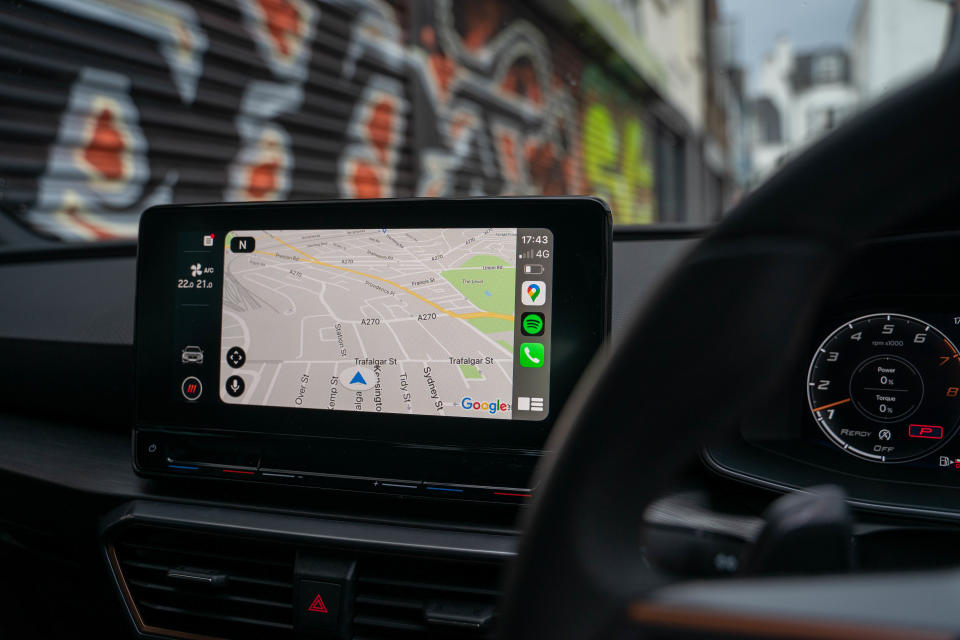Long-term report: Introducing the Cupra Leon Estate, our new high-performance load-lugger
Here in Britain, we’re the hot hatch capital of the world. The passion was born from putting tuned engines in everyday cars to make affordable performance models, and it has grown into a massive business.
So much so that not only do manufacturers build tuned versions of their own everyday cars to sell from official dealers, but this has expanded to offer go-faster versions of the estate models too, promising the ultimate combination of practicality and performance.
One such example is the Cupra Leon Estate that we’re running for the next six months. Why is it here? To see if this on-paper all-rounder promise translates to the real world.

Let’s jump the first hurdle – what is Cupra? Spanish manufacturer Seat has long had a performance car division called Cupra, which would tune its road cars. In 2018, it was spun off to become its own brand, now making fast versions of Seat cars and gradually introducing its own unique models such as the Formentor and Born.
You can spot a Cupra from a Seat because it will have the logo that looks like a tribal tattoo, rather than the chunky ‘S’.
Under the bonnet is a 2.0-litre petrol engine, which is essentially the same one used across a variety of Volkswagen Group performance models. Here it makes 306bhp and 400Nm of torque, which goes through a seven-speed automatic transmission and all-wheel-drive.

It’s quick, going from 0-60mph in under five seconds and topping out at an electronically limited 155mph. When the first Leon Cupras hit the road over a decade ago, those figures would have seemed astronomical.
It feels every bit as quick as the figures suggest, too. There are various drive modes based on comfort-orientated or spirited, sporty road driving, as well as a Cupra mode that sharpens everything up for ultimate performance.
In the sportier modes, you plant your foot and after a brief delay as the gearbox figures out your intentions, you’re catapulted forward at a thrilling pace. Especially with the all-wheel-drive in our model, it’ll hook up even in damp conditions and embarrass much pricier machinery.

We’ve not had much time to drive the Cupra Leon Estate to the extent of its abilities in our brief time with the car so far, but expect a proper update on whether it’s just as exciting in the corners as it is darting off the line.
I expect the short, stubby paddle shifters mounted behind the wheel are likely to become annoying, though, because they’re not easy to reach and I’m not sure the gearbox is clever enough to respond quickly in automatic mode when pressing on.
That being said, the automatic gearbox is decent in everyday driving. Many Volkswagen Group models have lethargic automatics that can be infuriating to drive, but this is one of the best I’ve driven in a while.

It can be caught out by attempting to accelerate while slowing, for example approaching a red light that goes green, but generally it manages to respond quickly to your inputs.
Something that’s been slightly disappointing has been fuel economy. I’ve been spoiled by running a lower-powered BMW 4 Series for the six months prior to this Cupra test, and easily achieved 40mpg.
However, I’m struggling to keep over 30mpg in the Leon unless I’m taking it really easy on a longer trip. I’m expecting that to nosedive once making the most of the Cupra’s breadth of abilities on a winding country lane.

That’s to be expected, but when the official figures suggest up to 34mpg could be possible, slightly better fuel economy would be welcome.
As for the styling, that’s a real winner. The Leon is already a handsome car, but Cupra gives it a bit more of a sporting edge, with sharper lines and an aggressive front end. I prefer the hatchback as it looks more focused, but the Estate still looks cool, with the full-width taillights giving it a great signature at night.
It’s largely been good news, then – but it’s not all rosey. I’ve encountered an issue with the adaptive cruise control, which seems reluctant to overtake cars sometimes. I can’t find a common cause, as it happens in all weathers, day and night, and only on about 50 per cent of trips.

I think the car thinks it’s in Europe and therefore when overtaking it thinks it’s undertaking, which it’s programmed not to do. The result is that I pull out to pass someone and the car slows me automatically to match their speed, sitting in the outside lane just behind them.
I’ve contacted Cupra to find out if this is a known issue and how I might fix it, and will report back once we have a solution.
Despite that, I’ve been really pleased with the Cupra Leon Estate. It’s rapid when it needs to be but has a comfortable ride when you just want to chill. Next time we’ll dive into the equipment list, and hopefully have a fix for our overtaking issue…
Model as tested: Cupra Leon Estate VZ2
Price (as tested): £39,110
Engine: 2.0-litre petrol
Power: 306bhp
Torque: 400Nm
Max speed: 155mph
0-60mph: 4.7 seconds
MPG: 32.8 - 34.4
Emissions: 186g/km CO2

 Yahoo Finance
Yahoo Finance 